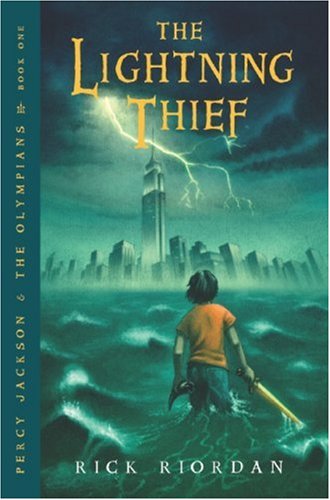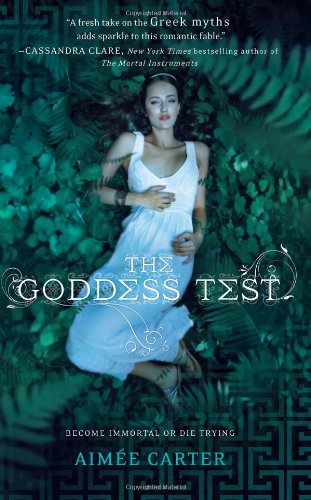Mythology in YA: Making the Old New Again
If you’re big into YA lit, you’ve probably noticed the surge in mythological retellings lately. The Percy Jackson series got the ball rolling, much in the same way that Harry Potter got kids (and adults) reading in record numbers. Whereas Percy Jackson is more middle grade, however, Tara Lynn Childs saw early success with her YA myth-based novels, Oh. My. Gods. and Goddess Bootcamp.


But for me, the surest sign that mythology was about to be huge in YA, was when Publisher’s Weekly announced that Harper Collins paid SEVEN FIGURES for a mythological trilogy pitched as “Percy Jackson for girls.” The opening novel, of course, is Josephine Angelini’s Starcrossed, which is a modern-day re-imagining of the myth of Helen and Paris of Troy. 2011 also brought us The Goddess Test by Aimee Carter, Asphodel by Lauren Hammond, and Abandon by Meg Cabot, all three of which offer a modern take on the Hades and Persephone myth. [I would be remiss if I did not also mention my own novel, Destined, which tells the myth of Eros & Psyche - still in ancient times, but with a modern perspective.] In just a few more days, we will see the debut of Everneath by Brodi Ashton, also an apparent take on the Hades and Persephone story, although I’ve also heard it likened to the myth of Orpheus and Eurydice.


So what’s up with all the ancient mythology in YA lately? Don’t teens get enough mythology shoved down their throats in tenth grade lit? The answer is simple... No. And here’s why: YA authors are breathing new life into myths, finding romance and beauty in stories that might fall flat in the classroom. It’s just like when we all read Romeo and Juliet and probably only understood half of what we were reading surrounded by all the “where for art thous” and “she doths.” For me, at least, reading it was difficult and cold. But then I really got down to the heart of the story - a young couple in love against all odds, willing to forsake their families, who find the perfect scheme to run away together, only to meet failure in the form of death at the moment of their triumph. It’s heartbreaking and painfully ironic and poignancy of it is probably one of the reasons the story has remained the most well-known of Shakespeare's plays.


Well, there’s no reason not to extract this same beauty from Greek myths. Why just focus on the psuedo-history we get in The Odyssey? Why not tell the story of the love affair that develops between Odysseus and the witch, Circe, while the sailor is trying to find his way home? Could there not be real intrigue and honest love - rather than an arranged marriage - in that tale? Of course, the author would need to find a way to bend it to YA (which probably explains the use of the Hades/Persephone myth so frequently), but you get my point.
There are so many fantastical elements in the Greek myth, so many monsters and heros and gods, that the stories lend themselves perfectly to being retold for fans of paranormal romance. Just like we’ve seen the rise and fall of vampires, weres, and fae, Greek myths will eventually burn themselves out. But until then, I for one am thrilled to see some really awesome stories made even better. After all, isn’t a hunky god (ahem, Eros) just as enticing as a vampire?

By day, Jessie Harrel an appellate lawyer. By night, she's a wife, mother of two, and author/lover of all things Greek mythology. She's a native Floridian, frustrated world traveler, unrepentant dreamer, lover of acoustic music and not-so-closet geek. Destined, being released November 17, 2011, is her first novel. Stay tuned for Beneath the Surface, co-written with the amazing Nikki Katz.

When Psyche receives a prophecy gone horribly wrong, she learns that even the most beautiful girl in Greece can have a hideous future. Her fate? Fall in love with the one creature even the gods fear.
As she feels herself slipping closer into the arms of the prophecy, Psyche must choose between the terrifyingly tender touch she feels almost powerless to resist and the one constant she's come to expect out of life: you cannot escape what is destined.